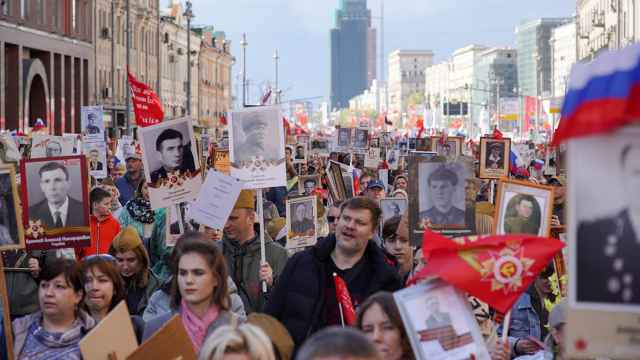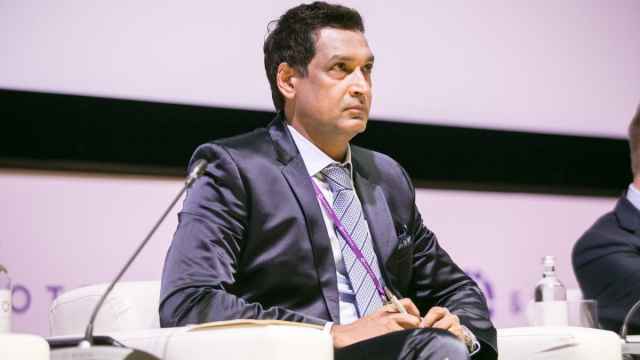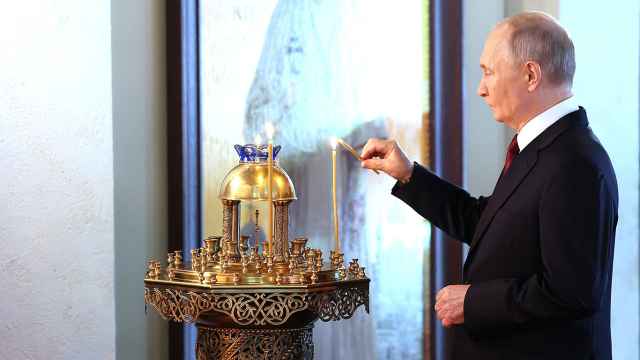Ever since 2014, state-controlled television has simply diverted viewers’ attention away from domestic challenges to the problems — both real and imagined — other countries face. Why talk about Russia’s shortcomings when life is even worse in Ukraine? Europe and the U.S. are in crisis and liable to collapse at any moment. Rather than maintain the superpower charade, Russia has tried to make everyone else look like losers. Against such a backdrop, Russia is meant to look more appealing.
State-controlled TV covered the coronavirus pandemic in the same spirit. Two months ago, Dmitry Kiselyov devoted half of his weekly program on Russia-1 to news about how Europe and the U.S. were panicking. But now, with Russia itself on lockdown for more than a month, hospitals overflowing with patients and small businesses struggling to survive, it would be political suicide to lecture viewers about the negligence and thoughtlessness of the Italians.
So, Kremlin spin doctors directed their television cameras on an easier target — Belarus, a country that many consider a feckless region of Russia, albeit with a different flag and national anthem. Why? Because it turns out things are even worse there than in Russia. Unsurprisingly, Belarusian President Alexander Lukashenko retaliated against the Kremlin propaganda by rescinding accreditation for a Russia-1 correspondent in his country.
To get an idea of what’s really happening in Russia, just do an Internet search for “doctors quitting.” Every day, a new story unfolds:
— Doctors in Novosibirsk quit over concerns for their personal safety;
— 350 physicians in the Kaliningrad region refuse to work during the pandemic;
— Dozens of anesthesiologists, pulmonologists and nurses submit their resignations after their hospitals were told to treat coronavirus patients;
— The head doctor of a hospital in Omsk resigned after dozens of medical workers lined up to get tested for Covid-19.
These are only the cases known to the media: in most instances, doctors quit without any fanfare to avoid problems with future employers.
Every day, an even greater number of stories emerge of hospital doctors issuing video appeals about their plight, explaining how they still lack personal protective equipment (PPE) and how the money that President Vladimir Putin promised them winds up in other people’s pockets.
Meanwhile, Russian TV broadcasts concerts in support of physicians and puts up ridicolous posters in public places. It is symbolic that the woman pictured in one of the posters has no other protection against the virus than an ordinary hospital gown, simple mask, hair net and oversized syringe. Apparently, the authorities had nothing else to give her.
At bus stops throughout the city, the Moscow authorities also mounted portraits of WWII-era doctors as role models for today’s physicians — and as a way to pay the obligatory homage to the 75th anniversary of the Great Victory.
In this, at least, the Kremlin spin doctors unwittingly hit the mark: it might be said that the feats performed by today’s medical personnel merit the same respect as the wartime heroism of their forebears. The difference, of course, is that now there is no war.

In fact, today’s doctors are heroes not only for risking their lives during an unprecedented pandemic, but for working within Russia’s long-dilapidated medical system.
Deputy Prime Minister Tatiana Golikova admitted last year that Russia’s healthcare reforms had failed and Finance Minister Anton Siluanov added that the country’s medical facilities were in terrible condition.
But, instead of discussion this in hopes of finding a solution, state TV scandalized viewers with gay marriages in Europe and transgenderism in the U.S. This could have gone on forever had not the coronavirus pandemic intervened. The Russian authorities have not figured out how to relegate that story into yet another diversionary sideshow.
The epidemic revealed that Moscow has the only decent outpatient services in the country, but also that even the flagship hospital in Kommunarka failed to pay dozens of nurses the salary supplements Putin had promised them.
The situation in the regions is disastrous.
Only now are many Russians learning the true results of their country’s healthcare reforms: the closing of hospitals in favor of smaller branch facilities and the consequent dismissal of thousands of medical personnel in every region.
In Russia, the professions of doctor and nurse now carry almost no prestige whatsoever — and offer salaries and working conditions to match. Hospitals receive no new funding yet must battle the same old rampant corruption.
The state has the resources to light up the windows of the Cosmos Hotel in Moscow to spell out “Thank you, doctors!” but it cannot provide those same individuals with PPE. For example, medical personnel at Hospital No. 1 in Omsk had to sew their own masks because surgical masks were simply unavailable. Now, the hospital has closed on quarantine.
In most regions, the authorities should not be making a display of thanking their doctors, but should be apologizing to them with eyes averted in shame.
For this, we should hold not only government officials to task for their failed reforms, but also the Kremlin propaganda machine that so denuded public discourse as to leave no room for honest discussion of the deplorable condition of Russia’s medical system. Otherwise, we might have patched the holes in this ship before it got caught in the current storm.
To this, a full-time Kremlin apologist such as Russia-1 talk show host Vladimir Solovyov might simply respond: “But in the U.S., the health care system doesn’t even….”
However, with more than 200,000 coronavirus infections and close to 2,000 deaths in Russia already, viewers might have a few choice words of their own to offer Solovyov and his ilk.
A Message from The Moscow Times:
Dear readers,
We are facing unprecedented challenges. Russia's Prosecutor General's Office has designated The Moscow Times as an "undesirable" organization, criminalizing our work and putting our staff at risk of prosecution. This follows our earlier unjust labeling as a "foreign agent."
These actions are direct attempts to silence independent journalism in Russia. The authorities claim our work "discredits the decisions of the Russian leadership." We see things differently: we strive to provide accurate, unbiased reporting on Russia.
We, the journalists of The Moscow Times, refuse to be silenced. But to continue our work, we need your help.
Your support, no matter how small, makes a world of difference. If you can, please support us monthly starting from just $2. It's quick to set up, and every contribution makes a significant impact.
By supporting The Moscow Times, you're defending open, independent journalism in the face of repression. Thank you for standing with us.
Remind me later.








